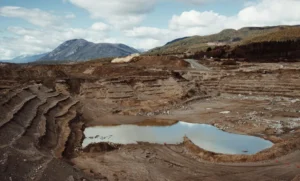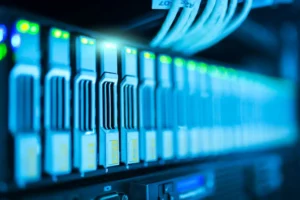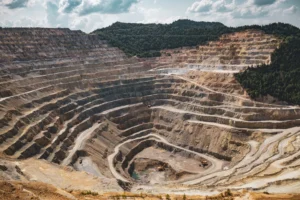Pollution is the contamination of our environment by harmful substances. These contaminants originate from various sources such as industry, transportation, agriculture, and waste disposal.
This contamination can have severe effects on our health and the environment.
Pollution
The contamination of the environment by harmful substances is known as pollution.
Pollution can begin from various sources, including:
Industrial activities:
Factories, manufacturing plants, and refineries can release pollutants into the air, water, and soil.
Transportation:
Vehicles, airplanes, and ships emit pollutants such as greenhouse gases, particulate matter, and nitrogen oxides.
Agriculture:
The use of pesticides, fertilizers, and other agricultural chemicals can contaminate soil, water, and air. Soil erosion is also a big source of pollution.
Waste disposal:
Improper disposal of waste, including e-waste, can lead to pollution of landfills, waterways, and the atmosphere.
Construction and development:
Activities such as deforestation, mining such as open-pit mining specifically, and construction can release pollutants and disrupt ecosystems.
Household activities:
Everyday activities like cooking, cleaning, and using household products can contribute to pollution. Chemicals draining from households, such as bleach can also contaminate water supplies.
Natural sources:
While human activities are the primary cause of pollution, natural sources such as volcanic eruptions and forest fires can also contribute to pollution.
Littering:
Disposing of waste improperly, such as throwing it on the ground or into waterways, can lead to pollution.
What is Pollution
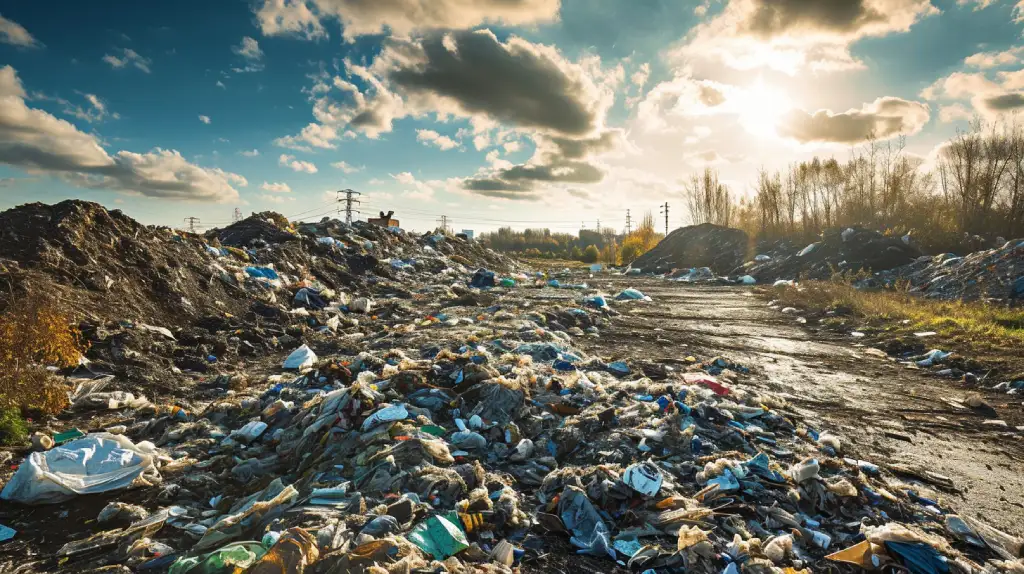
Pollution is the introduction of harmful substances or pollutants into the natural environment, resulting in harmful effects on living organisms and ecosystems. These pollutants can be in the form of chemicals, waste, noise, or light.
Pollution matters because it disturbs the sensitive balance of nature, leading to environmental degradation and health hazards for both humans and animals.
It is a global issue that requires immediate attention to prevent long-term damage to our planet and secure a sustainable future.
What is Pollution?
Pollution Definition
Pollution occurs when harmful substances, such as chemicals, waste, or energy, are introduced into the environment, causing harmful effects. These pollutants can contaminate the air, water, and soil, making them unsafe for living organisms.
Types of Pollution
Air Pollution
Air pollution involves the release of harmful gases and particulate matter into the atmosphere. Common sources include vehicle emissions, industrial activities, and the burning of fossil fuels.
For example, CFCs and smog are both contributors to air pollution in urban areas due to industrial emissions, vehicle exhaust, and other human activities.
Water Pollution
Water pollution occurs when contaminants, such as chemicals, waste, and plastics, enter water bodies such as rivers, lakes, and oceans. Industrial discharges, agricultural runoff, and sewage are major contributors.
An example is the contamination of water sources with heavy metals like mercury, which can harm aquatic life and enter the food chain.
Soil Pollution
Soil pollution is the contamination of soil with harmful chemicals, waste, and toxins. Pesticides, industrial waste, and improper disposal of hazardous materials are common causes.
Contaminated soil can lead to reduced agricultural productivity and pose health risks through the food we consume.
Noise Pollution
Noise pollution is the excessive and harmful levels of noise in the environment, usually caused by traffic, construction, and industrial activities. Extended exposure to high noise levels can lead to hearing loss, stress, and other health problems.
Light Pollution
Light pollution is the overuse of artificial light, especially in urban areas, which disrupts natural night environments. It affects both wildlife and humans by altering sleep patterns and clouding the night sky, hindering astronomical observations.
Plastic Pollution
Plastic pollution involves the piling up of plastic products in the environment, particularly in oceans. This form of pollution is devastating to marine life, as animals can swallow or become entangled in plastic waste, leading to injury or death.
Ocean Pollution
Ocean pollution includes the dumping of waste, oil spills, and chemical runoff into the ocean, severely affecting marine ecosystems. An example is the Great Pacific Garbage Patch, a large area of floating plastic debris that harms marine species.
Thermal pollution occurs when industries release heated water or discharge into natural water bodies, raising the temperature and disrupting aquatic ecosystems. This can lead to decreased oxygen levels in water, harming fish and other marine life.
Chemical Pollution
Chemical pollution involves the release of hazardous chemicals into the environment from industrial processes, agriculture, and improper waste disposal. Examples include pesticides, heavy metals, and industrial solvents, which can contaminate air, water, and soil, posing serious health risks.
Causes of Pollution
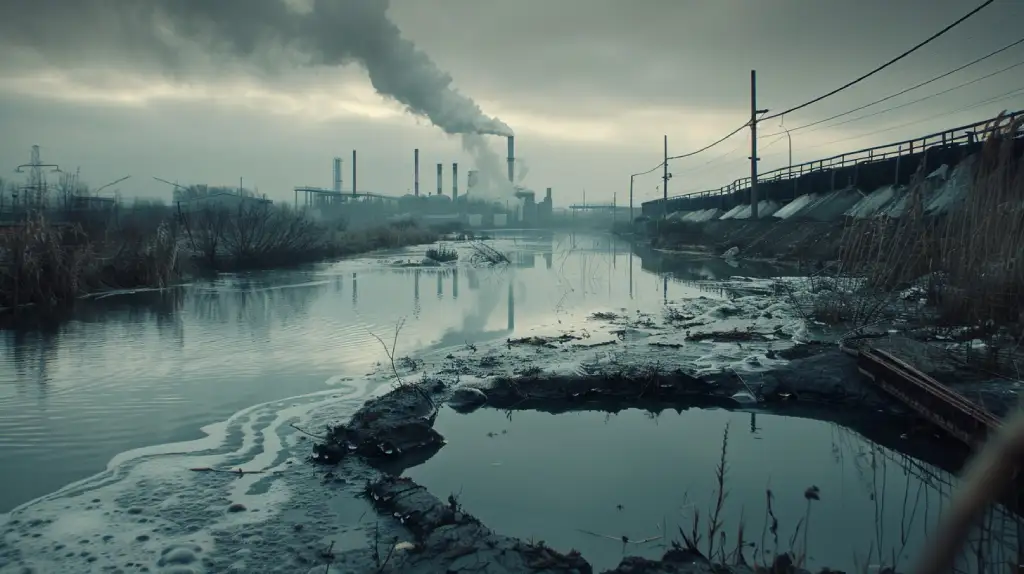
Human Activities as Major Contributors
Human activities are the primary causes of pollution. Industrial production often releases toxic chemicals and waste into the environment. The burning of fossil fuels for energy leads to air pollution, while improper waste disposal contaminates land and water.
Urbanization and deforestation contribute to air and water pollution, as natural landscapes are replaced with cities and infrastructure, leading to increased waste and emissions.
Agricultural practices, particularly the use of pesticides and fertilizers, also contribute to soil and water pollution.
Natural Causes of Pollution
While human activities are the main drivers, natural events can also cause pollution.
Volcanic eruptions release ash and gases into the atmosphere, affecting air quality.
Wildfires, usually increased by climate change, contribute to air pollution by releasing large amounts of smoke and particulate matter.
Dust storms and erosion can lead to soil and air pollution, while natural oil seeps can pollute oceans.
Effects of Pollution

Health Impacts: How Pollution Affects Human Health
Pollution poses serious risks to human health.
Air pollution can lead to respiratory problems, such as asthma, bronchitis, and lung cancer. Extended exposure to polluted air increases the risk of heart disease and stroke.
Water pollution can cause gastrointestinal illnesses, skin rashes, and even neurological disorders when contaminated water is consumed.
Soil pollution can lead to the accumulation of toxins in crops, which may cause health issues when ingested.
Noise pollution affects mental health, leading to stress, anxiety, and sleep disturbances.
Overall, pollution Excessively affects vulnerable populations, including children, the older people, and those with pre-existing health conditions.
Environmental Damage: The Impact on Ecosystems and Wildlife
Pollution has devastating effects on the environment.
Air pollution contributes to climate change by increasing the concentration of greenhouse gases, leading to global warming. Acid rain, caused by air pollution, damages forests, lakes, and soil.
Water pollution harms aquatic ecosystems, causing the death of fish and other marine life due to toxins and reduced oxygen levels.
Soil pollution reduces the fertility of land, affecting plant growth and leading to the loss of biodiversity.
Chemical pollution can cause long-term damage to ecosystems, with persistent chemicals like pesticides remaining in the environment for decades.
Solution to Pollution
Individual Actions: What You Can Do to Reduce Pollution
Individuals can make a difference by adopting sustainable practices, such as picking up trash and practicing proper waste management.
Reducing waste through recycling, composting, and reducing plastic use helps lower pollution levels.
Conserving energy by using energy-efficient appliances, clean energy products, reducing water consumption, and choosing for public transport or carpooling can reduce emissions.
Supporting eco-friendly products and practices also contributes to lowering pollution.
Educating others about the importance of pollution prevention and participating in community clean-up efforts can amplify these efforts.
Government and Policy Measures
Governments are crucial in combating pollution. Implementing stricter regulations on industrial emissions, waste management, and chemical use can highly reduce pollution levels.
Promoting sustainability, renewable energy sources, such as wind and solar power, helps decrease reliance on fossil fuels, thus reducing air pollution.
Investing in sustainable technology, public transportation and green infrastructure can reduce urban pollution.
Policies that motivate sustainable agriculture, protect natural resources, and enforce pollution control measures are essential for long-term environmental health.
The Bottom Line
Pollution is a global challenge that requires immediate and sustained action. The harmful effects of pollution on health, the environment, and the economy point out the need for collective efforts to address this issue.
By reducing pollution, we can improve the quality of life for all living beings and preserve the world for future generations.
Now is the time to act. Simple changes in our daily lives, such as reducing waste, conserving energy, and supporting eco-friendly policies, can have a big impact. Encourage others to do the same, and support for stronger environmental protection measures at the local and national levels.
Together, we can reduce pollution and create a healthier, more sustainable world.
FAQ's
1. What is pollution in simple words?
Pollution is the contamination of the environment by harmful substances.
2. What causes pollution?
Pollution can be caused by various sources, including industrial activities, transportation, agriculture, and waste disposal.
3. How can we stop pollution?
To stop pollution, we need to reduce our reliance on fossil fuels, promote sustainable practices, and implement stricter environmental regulations.
4. How does pollution affect the environment?
Pollution can have devastating effects on ecosystems, human health, and the whole world.

